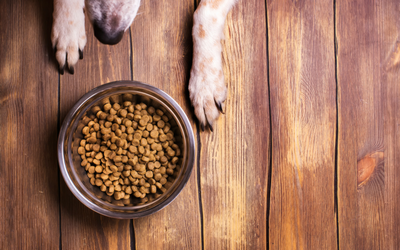As a dog owner, you want to make sure your furry friend is getting the best nutrition possible. But with so many options and conflicting information out there, it can be overwhelming to know what you should and should not feed your dog.
In this article, we’ll break down the basics of dog nutrition and provide some guidelines on what to include and avoid in your dog’s diet.

Understanding Dog Nutrition
Before we dive into specific foods, it’s important to understand the basics of dog nutrition. Dogs are omnivores, meaning they can eat both meat and plant-based foods. However, their diet should primarily consist of animal protein.
Dogs require a balanced diet that includes protein, carbohydrates, fats, vitamins, and minerals. The amount of each nutrient needed varies based on factors such as age, size, and activity level. It’s important to consult with your veterinarian to determine the specific nutritional needs of your dog.
Protein
Protein is essential for dogs as it helps build and maintain muscle mass, supports the immune system, and aids in digestion. High-quality animal protein sources such as chicken, beef, and fish are recommended for dogs.
Carbohydrates
Carbohydrates provide energy for dogs and should make up a smaller portion of their diet compared to protein. Good sources of carbohydrates for dogs include whole grains, vegetables, and fruits.
Fats
Fats are an important source of energy for dogs and also help with nutrient absorption and maintaining healthy skin and coat. Healthy fats such as omega-3 fatty acids can be found in fish, flaxseed, and canola oil.
Vitamins and Minerals
Vitamins and minerals are essential for a dog’s overall health and well-being. These nutrients can be found in a variety of foods, but it’s important to ensure your dog is getting a balanced amount of each.

Foods to Include in Your Dog’s Diet
Now that we’ve covered the basics of dog nutrition, let’s take a look at some specific foods that are beneficial for your dog.
Lean Proteins
As mentioned earlier, protein is a crucial part of a dog’s diet. Lean proteins such as chicken, turkey, and fish are excellent options for dogs. These proteins are low in fat and provide essential amino acids for your dog’s health.
Whole Grains
Whole grains are a good source of carbohydrates for dogs. They provide energy and fiber, which aids in digestion. Some examples of whole grains that are safe for dogs include brown rice, oatmeal, and quinoa.
Vegetables
Vegetables are a great addition to your dog’s diet as they provide essential vitamins and minerals. Some vegetables that are safe for dogs include carrots, green beans, and sweet potatoes. It’s important to avoid feeding your dog onions, garlic, and mushrooms as these can be toxic to dogs.
Fruits
Fruits are another source of vitamins and minerals for dogs. Some safe options include apples, bananas, and blueberries. However, it’s important to avoid feeding your dog grapes, raisins, and avocados as these can be harmful to dogs.
Probiotics
Probiotics are beneficial bacteria that can help improve your dog’s gut health. They can be found in foods such as yogurt, kefir, and fermented vegetables. Adding probiotics to your dog’s diet can help with digestion and boost their immune system.

Foods to NOT feed your dogs
Just as there are foods that are beneficial for your dog, there are also foods that should be avoided. These include:
Chocolate
Chocolate contains a compound called theobromine, which is toxic to dogs. It can cause vomiting, diarrhea, and even death in severe cases. It’s important to keep chocolate out of reach of your dog at all times.
Grapes and Raisins
Grapes and raisins can cause kidney failure in dogs. It’s best to avoid feeding your dog these fruits or any foods that contain them.
Onions and Garlic
Onions and garlic contain compounds that can damage a dog’s red blood cells, leading to anemia. It’s important to avoid feeding your dog any foods that contain these ingredients.
Xylitol
Xylitol is a sugar substitute commonly found in sugar-free gum and other products. It can cause a rapid release of insulin in dogs, leading to low blood sugar and liver failure. It’s important to check the ingredients of any products before giving them to your dog.

Conclusion
In conclusion, it’s important to provide your dog with a balanced and nutritious diet. This includes lean proteins, whole grains, vegetables, fruits, and probiotics. It’s also important to avoid feeding your dog foods that are toxic or harmful, such as chocolate, grapes, and onions. If you’re a fan of Dog Haus, you can find their nutritional information on their website or in their nutrition PDF. By following these guidelines, you can ensure that your dog is getting the best nutrition possible and living a healthy and happy life.

